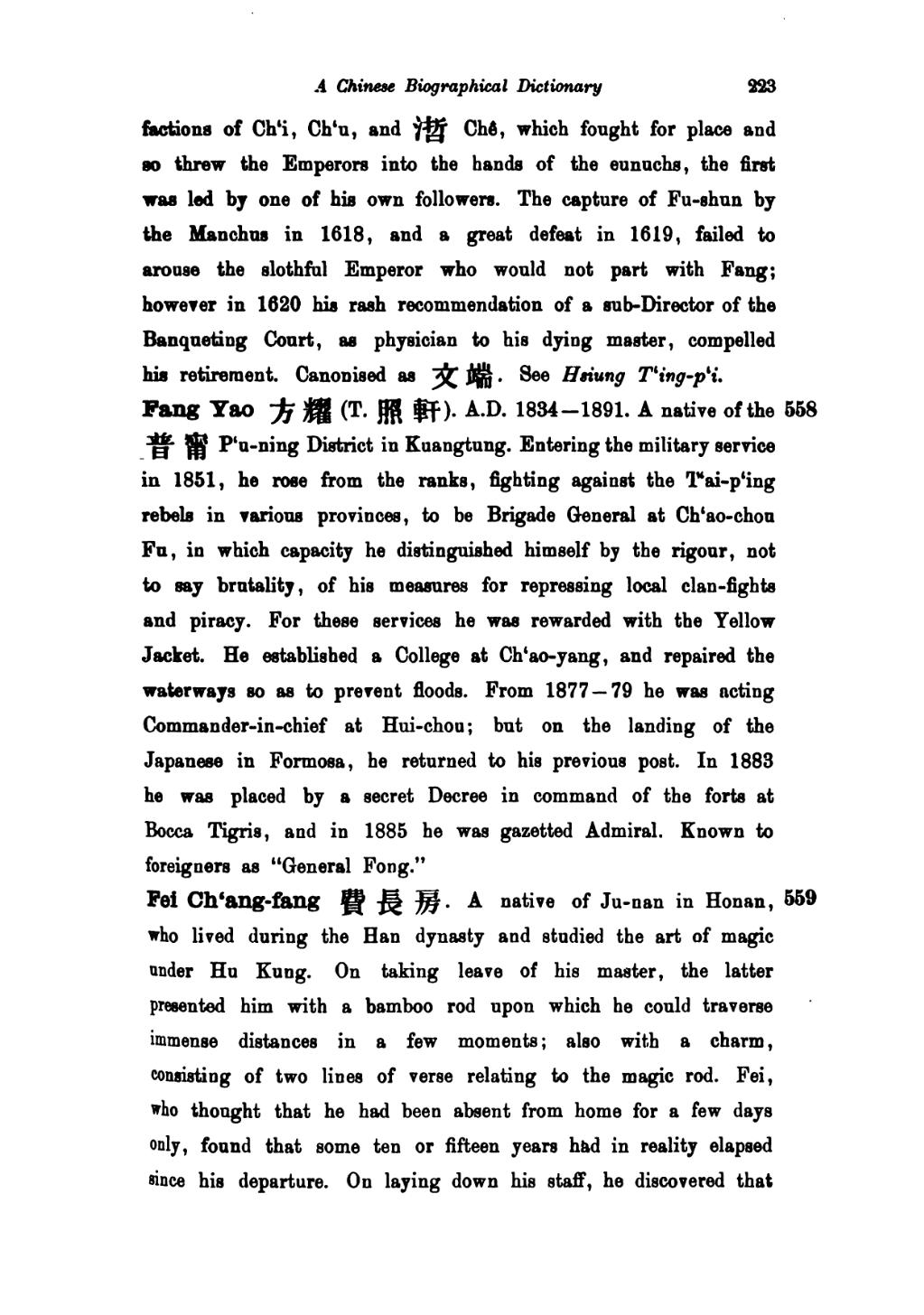factions of Ch'i, Ch'u, and 浙 Chê, which fought for place and so threw the Emperors into the hands of the eunuchs, the first was led by one of his own followers. The capture of Fu-shun by the Manchus in 1618, and a great defeat in 1619, failed to arouse the slothful Emperor who would not part with Fang; however in 1620 his rash recommendation of a sub-Director of the Banqueting Court, as physician to his dying master, compelled his retirement. Canonised as 文端. See Hsiung T'ing-p'i.
558
Fang Yao 方耀 (T. 照軒). A.D. 1834-1891. A native of the 普甯 P'u-ning District in Kuangtung. Entering the military service in 1851, he rose from the ranks, fighting against the T'ai-p'ing rebels in various provinces, to be Brigade General at Ch'ao-chou Fu, in which capacity he distinguished himself by the rigour, not to say brutality, of his measures for repressing local clan-fights and piracy. For these services he was rewarded with the Yellow Jacket. He established a College at Ch'ao-yang, and repaired the waterways so as to prevent floods. From 1877-79 he was acting Commander-in-chief at Hui-chou; but on the landing of the Japanese in Formosa, he returned to his previous post. In 1883 he was placed by a secret Decree in command of the forts at Bocca Tigris, and in 1885 he was gazetted Admiral. Known to foreigners as "General Fong."
559
Fei Ch'ang-fang 費長房. A native of Ju-nan in Honan, who lived during the Han dynasty and studied the art of magic under Hu Kung. On taking leave of his master, the latter presented him with a bamboo rod upon which he could traverse immense distances in a few moments; also with a charm, consisting of two lines of verse relating to the magic rod. Fei, who thought that he had been absent from home for a few days only, found that some ten or fifteen years had in reality elapsed since his departure. On laying down his staff, he discovered that

